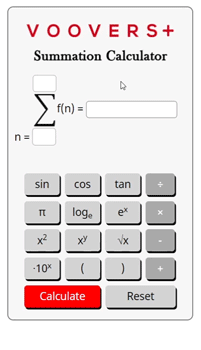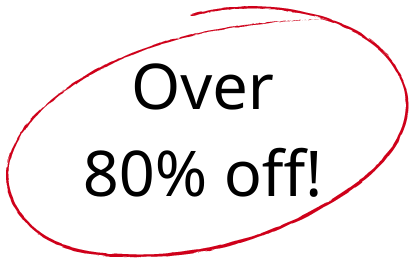Related Content
Summation Calculator


 f(n) =
f(n) = To get unlimited answers, .

Lesson on Summations
Lesson Contents
How to Calculate a Summation by Hand
Also called sigma notation, summation notation allows us to sum a series of expressions quickly and easily, especially when using a calculator. In various situations in mathematics, physics, or engineering, we may need to add up a large amount of expressions/terms that can’t be summed with a basic calculator or single math operation. In these scenarios it is sometimes useful to use a summation or sigma notation to add up terms.
Summation notation works for a series of numbers and for a series of expressions. For the example expression 3n + 1, the notation is given as:

Where n is the integer placeholder, and we are summing the expression 3n + 1 with integers 1 through 5.
Since the lower limit is 1 and the upper limit is 5, we know that we are going to be sequencing through 1, 2, 3, 4, and 5. We will plug in 1 to the expression, then add the result of plugging 2 into the expression, then add the result of plugging 3 into the expression, and so forth until we add the result of plugging in our final integer of 5.
Different letters can be used instead of n such as i, j, or even x. To use other integer placeholders, just replace every instance of n in the summation formula with that new integer placeholder.
How the Calculator Works
This calculator is written in JavaScript (JS) and uses a JS-native computer algebra system (CAS). Because JS is used, your device’s internet browser runs the calculator locally which results in near-instant solutions.
The JS-native CAS uses symbolic computation to return the result of your inputted summation. It is symbolic because it treats n as a symbol and fully expands the summation. Essentially, it is following the same steps that we would if calculating by hand.
Once the summation is expanded, it plugs the lower and upper series limits into the expanded summation. The expression is then simplified into the resulting number. If the number is a decimal, it is rounded to the fourth decimal place. Then, the answer is formatted into LaTeX (a math rendering/markup language) and displayed in the answer area.












